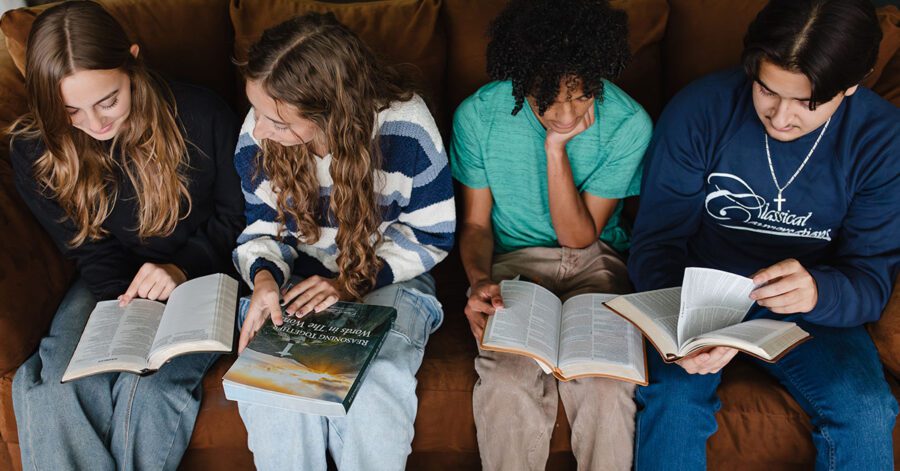I have been teaching Latin now for almost twenty years. Often the parents of my students will lament to me that they did not learn Latin, or any other language, when they were young.
I will often ask them a simple question: “Why not start now?”
The quick answer is almost always the same. “Oh, I am too old. I missed my chance when I was younger. I should have listened in school. I can’t do it now.”
They are wrong, you know.
After twenty years in the classroom I am increasingly convinced that the best place to learn another language is outside the classroom. Not only that, I am becoming increasingly convinced that the best time to start learning a language is now. Your age might not matter.
One of my favorite stories is the story of Dr. Mary Hobson. In her fifties, she was hospitalized for a few weeks. While immobilized, her daughter brought her a copy of Tolstoy’s War and Peace, saying “Here, Mom! There won’t ever be a better time to read War and Peace.”
As she finished the book, Dr. Hobson wondered what it would be like to read the book in Russian.
At age fifty-six she began teaching herself Russian. She received her PhD in Russian at seventy-four years of age. She became an award-winning translator.
She is not the only one. Benjamin Franklin mentions a similar experience in his autobiography. Lamenting his own lack of a classical education, he taught himself Latin and Greek at age forty.
We do not lose the ability to learn another language as we age. The truth is, as we age, we become too busy to learn another language.
When we are kids, we are enrolled in school full-time. We dedicate hours to study. Kids are “better” at learning languages simply because they spend more time doing it.
I have taught foreign languages for years. I have taught children and adults. From experience, I can assure you, the adults are much more motivated. They are easier to teach. They see the value of learning another language. They understand the power that comes with words. On the other hand, the children I have taught are not motivated. They want to go to the bathroom, go outside to play, eat lunch, sit next to the cute girl, pass notes, throw paper airplanes, create origami, untie their shoes, argue, or whisper.
In fact, during language class, they tend to have one main goal: Do something else.
In the end, children have an “easier” time learning languages because they spend more time learning languages. It’s simple math. If I spend 5,000 hours practicing golf, and you spend 100 hours practicing golf, I will be better at golf than you are.
While children are in school, most adults are working. While children are spending hours reading and learning, adults are busy making sure the bills are paid. Children are “better” at languages because they are not as busy and burdened as adults.
I remind my students of this constantly. They smile and ignore me. Often they return, years later. They tell me they should have listened. They ask me to teach them now. They refused to listen then.
If you are reading this as an adult, be encouraged. You can learn a foreign language, even Latin. If your children are taking Latin this year, why not learn Latin with them? You can. I teach Latin online. There are quite a few parents who join their children in class. You will not be alone.
If you are reading this as a student, be warned: Now is your chance. Study hard. Life gets busier. Now is your chance. Seize it.




